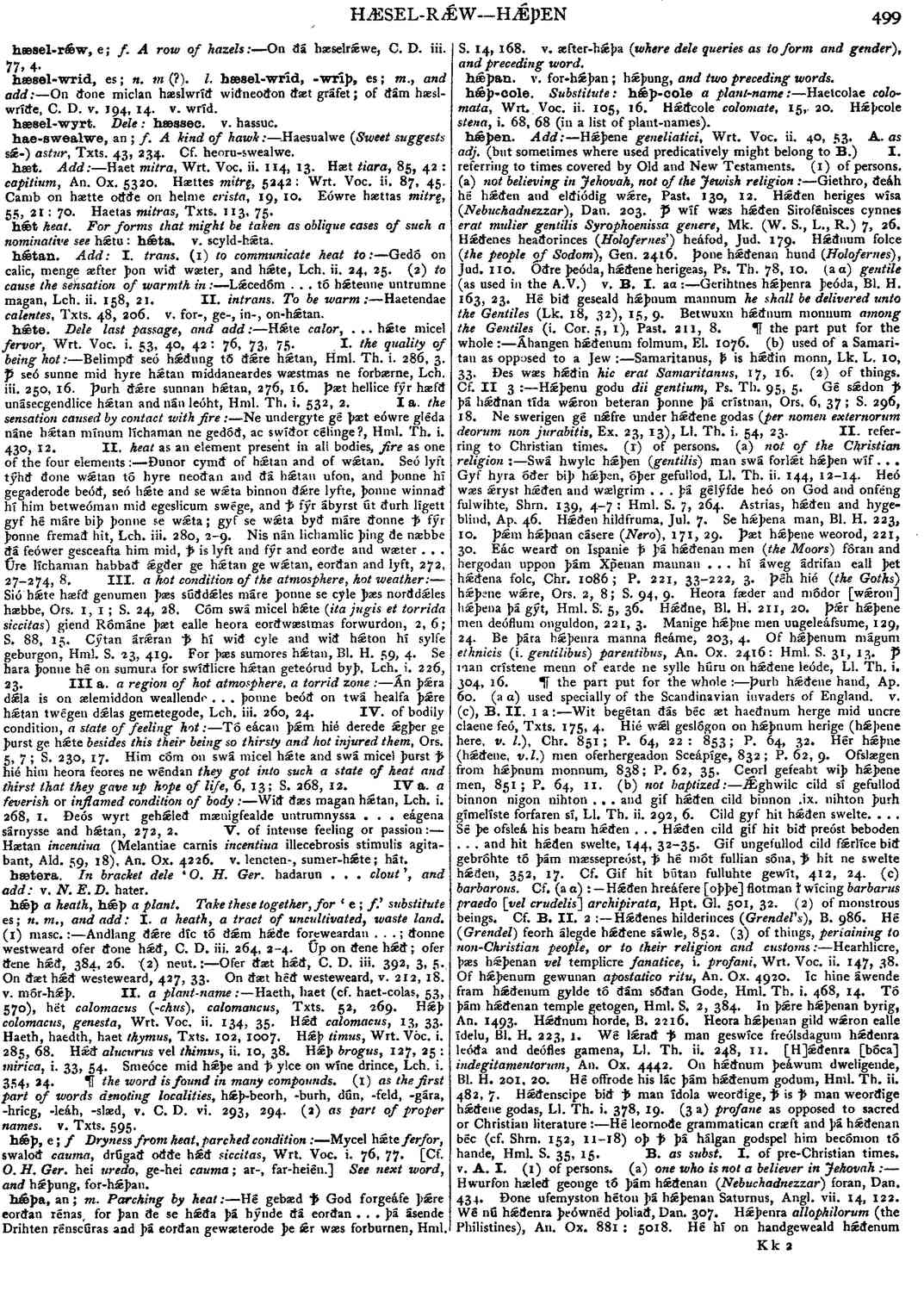hǽþ
- noun [ feminineneuter ]
-
Andlang ðǽre díc tó ðǽm hǽðe foreweardan . . . ; ðonne westweard ofer ðone hǽð,
- C. D. iii. 264, 2-4.
-
Úp on ðene hǽð; ofer ðene hǽð,
- 384, 26.
-
Ofer ðæt hǽð,
- C. D. iii. 392, 3, 5.
-
On ðæt hǽð westeweard,
- 427, 33.
- On ðæt héð westeweard, v. 212, 18. v. mór-hǽþ.
-
Haeth, haet (cf. haet-colas, 53, 570), hét
calomacus (-chuns), calomancus,
- Txts. 52, 269.
-
Hǽþ
colomacus, genesta,
- Wrt. Voc. ii. 134, 35.
-
Hǽð
calomacus,
- 13, 33.
-
Haeth, haedth, haet
thymus,
- Txts. 102, 1007.
-
Hǽþ
timus,
- Wrt. Voc. i. 285, 68.
-
Hǽð alucurus vel
thimus,
ii.- 10, 38.
-
Hǽþ brogus, 127, 25 :
mirica,
i.- 33, 54.
-
Smeóce mid hǽþe and ꝥ ylce on wíne drince,
- Lch. i. 354, 24.
- ¶ the word is found in many compounds,
- v. C. D. vi. 293, 294.
Bosworth, Joseph. “hǽþ.” In An Anglo-Saxon Dictionary Online, edited by Thomas Northcote Toller, Christ Sean, and Ondřej Tichy. Prague: Faculty of Arts, Charles University, 2014. https://bosworthtoller.com/51575.
Checked: 0